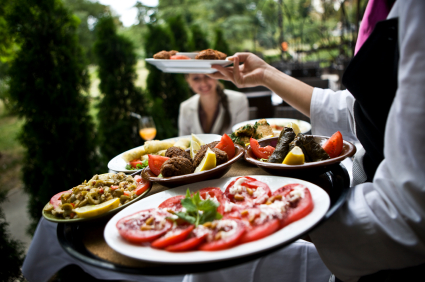Could Catering to Special Diets be Worth it for You? Part 2
 In our last blog, we started to explore the growing interest in catering to special diets with health coach, speaker, and caterer Yeshi Demisse. With more people choosing to abstain from certain foods for ethical reasons (such as vegans and vegetarians) or for health reasons (such as diabetes, allergies, heart disease, etc.), could catering to special diets be worth it for you?
In our last blog, we started to explore the growing interest in catering to special diets with health coach, speaker, and caterer Yeshi Demisse. With more people choosing to abstain from certain foods for ethical reasons (such as vegans and vegetarians) or for health reasons (such as diabetes, allergies, heart disease, etc.), could catering to special diets be worth it for you?
And if you decide to cater to special dietary requests, how can you cater to special requests easily without changing your entire menu and business—and without driving away business from folks who still want their chicken wings and mozzarella sticks? How do you strike a healthy business balance, so you’re adding to your clientele, not trading one set of patrons for another?
Yeshi doesn’t think you have to sacrifice one set of clients for the other. “Offering healthy options isn’t exclusive—it’s inclusive. People with no food allergies, diseases, or strong food preferences—everyone can benefit from eating healthier,” she states.
She also notes that catering to vegan, diabetic, and other health-conscious diets is just like any other kind of catering. Once you have your go-to recipes and substitutions that you like to use, this type of cooking quickly becomes second nature.
Yeshi knows that this growing number of health-conscious patrons is still in the minority. She blames this on “lack of awareness or simply because their tastebuds are accustomed to salty, fatty, unhealthy food. It is not an easy habit to break. Even sick people would prefer the types of food they are used to although it has contributed to their health conditions.”
Other barriers may prevent caterers from venturing into healthier food options. The cost for healthier, higher quality ingredients can discourage caterers and customers. The trick is finding locally sourced, seasonal food and comparison shopping between food distributors. In other words, if fresh greens are out of season and incredibly expensive in the fall and winter, offer some nice squash and root vegetables instead. You’ll often be able to offer a higher quality product for less.
Also, dietary needs vary from one individual to another. Yeshi says, “Even people with the same [health] issues have specific needs that are relative to the overall constitution of the individual. However, gluten-free, low-sodium, low-fat, sugar- and dairy-free options can easily be incorporated into any menu.” Yeshi adds, “I also believe training kitchen staff in healthy cooking styles is critical, since besides ingredients, the way we prepare food contributes to the quality and the healthiness of the meal.”
Yeshi knows firsthand the healing power of healthy, nutritious food. Throughout the course of her training, she has studied with prestigious doctors such as Dr. Deepak Chopra and Dr. Andrew Weil, to name a few. Early in her food and nutrition education, she got to learn from Dr. Ann Wigmore herself in 1988. Dr. Wigmore was the person behind wheatgrass juice therapy—a movement that exists to this day. She has also studied macrobiotic and living food (raw) diets, or lifestyles, as she prefers to call them.
“From my personal experience,” says Yeshi, “both diets [wheatgrass juice therapy and macrobiotic] are very healing despite their different theories and approaches. It is important to explore them both from one’s own personal needs. Although they are referred to as diets, we have to acknowledge that they are both lifestyle choices, and we have to look at the concept as a whole.”
Yeshi’s first restaurant emphasized healthy options from her native Ethiopian cuisine and gluten-free options. She also gave cooking classes on healthy eating, menu planning, living foods, macrobiotics, sugar- and dairy-free desserts, and much more. That’s when she was approached by an alternative healthcare doctor who treated critically sick cancer patients. She needed someone who could prepare healthy food for the patients in her center.
Most of her patients did not know about healing foods, nor did they have the energy to cook for themselves. Under the doctor’s guidance and recommendations, Yeshi started offering specific foods tailored to each individual’s needs, as the doctor deemed necessary. Patients came to the facility for a specific period of time for detoxification and other types of treatment. When they went home, they would go back with the food Yeshi had prepared for them that was specifically recommended for their healing. The feedback, and the results, were astounding.
“Working with this doctor, combined with the feedback I received from patients, strengthened my dedication to offering such services,” Yeshi remembers. This experience was part of what made her and her sons decide to make their current restaurant, the Nile (Ethiopian cuisine), 100% gluten free. She still offers macrobiotic meals on-demand, emphasizes healthy cooking, and gives diverse cooking classes in the area.
So how do you actually start to offer specialized food as a caterer? How can you make it a seamless part of what you offer, without a lot of extra expense and trouble that can spell chaos in your kitchen?
In our next blog, we’ll explore specific ways you can start offering special items to your clients, including where to find recipes and easy ingredient substitutions, as we discuss if catering to special diets is worth it for you.